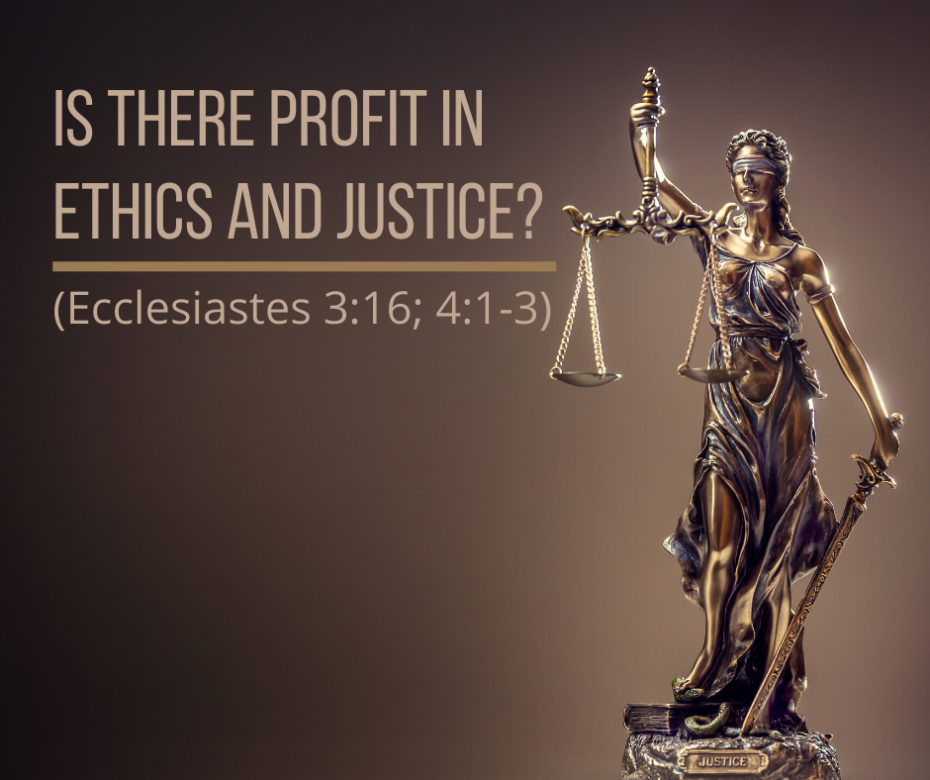King Solomon was searching for the meaning and purpose of life. Why go on living? What purpose does it serve? What’s to gain?
What profit has a man from all his labor
In which he toils under the sun? (Eccl 1:3).
But crucially, Solomon was looking for the purpose of life in life. But where? So far, in Ecclesiastes, Solomon had failed to find meaning in wisdom, in pleasure, or in accumulating things (what Søren Kierkegaard once called the aesthetic level of existence). But some people go “higher” than pleasures and things and look for meaning by pursuing more abstract values such as ethics and justice—i.e., righting the wrongs of the world.
So did Solomon. In fact, that’s how he became so wise—he asked God for the gift of discerning between good and evil to better govern the people (1 Kgs 3:9). But did it help? And did it make a difference?
Moreover I saw under the sun:
In the place of judgment,
Wickedness was there;
And in the place of righteousness,
Iniquity was there (Eccl 3:16).
Did seeing all the wickedness and iniquity spur Solomon on to fix society? Is that where he found his purpose? No. It didn’t matter what he did—wickedness prevailed.
Again I looked and saw all the oppression that was taking place under the sun:
I saw the tears of the oppressed—
and they have no comforter;
power was on the side of their oppressors—
and they have no comforter.
And I declared that the dead,
who had already died,
are happier than the living,
who are still alive.
But better than both
is the one who has never been born,
who has not seen the evil
that is done under the sun (Eccl 4:1-3 NIV).
This is one of the bleakest pronouncements, not just in the Bible, but in all philosophy. Listen again to what Solomon has said. Not only is the search for justice vanity (as he has said about his other quests)—things are so bad it’s better to be dead and best never to have been born at all! That is pessimism in its most extreme form—a position known as antinatalism, i.e., of being against birth, and of claiming that it is better not to exist. (You sometimes read about that, especially in the context of environmental activism.)
Once again, Solomon’s search for meaning “under the sun” failed, and his options for discovering the significance of his life were narrowing.


